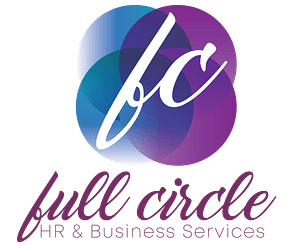NAIDOC Week 6 – 13 July 2025 2025: “The Next Generation: Strength, Vision & Legacy”
Each July, NAIDOC (National Aboriginal and Islanders Day Observance Committee) Week provides a vital opportunity for Australians to recognise and celebrate the history, culture, and achievements of Aboriginal and Torres Strait Islander peoples. It’s also a time to reflect on how inclusive, supportive, and culturally safe your workplace is for First Nations people.
This year’s theme celebrates the 50th anniversary of NAIDOC Week and invites all Australians to honour the enduring strength of Aboriginal and Torres Strait Islander peoples. It focuses on supporting emerging Indigenous leaders and embedding cultural pride and self-determination into institutions and communities. For workplaces, the message is clear: building a strong future starts with inclusion, respect, and leadership at every level.
Why NAIDOC Week Matters for Workplace Culture, HR and Safety
At the core of workplace wellbeing is this simple truth: everyone deserves to be happy, healthy and safe at work. NAIDOC Week encourages businesses to align their people practices and safety systems with inclusive, culturally safe principles that benefit all staff as well as clients and contacts. This June and July as NAIDOC Week approaches, consider how your business can make critical improvements to improve the experience of First Nations people:
1. Culturally and Psychologically Safe Workplaces
From December 2025, new Victorian OHS Regulations will require employers to manage psychosocial hazards—like bullying, discrimination, and racism—just as seriously as physical risks. For Aboriginal and Torres Strait Islander workers, cultural safety matters. Consider:
- Embed cultural respect in everyday practice
- Reviewing policies for anti-discrimination and inclusion
- How you can encourage open and safe conversations
- How you can ensure First Nations staff feel heard, respected, and free from harm
2. Mental Health and Wellbeing Support
Cultural load and intergenerational trauma can impact wellbeing. Standard supports may not always fit. Consider:
- Providing access to culturally appropriate EAPs
- Allowing leave for community or cultural obligations
- Training leaders in trauma-aware communication
3. Cultural Competency Training
Workplaces are safer when people understand each other. Consider:
- Including cultural awareness in induction and refresh regularly
- Teaching respectful communication and cultural protocols
- Linking training to real-world situations in your business
4. Inclusive Policies and Leadership
Leadership and policy shape culture. Inclusion shouldn’t be optional. Consider:
- Reviewing HR and safety policies through a cultural lens
- Training managers in inclusive leadership
- Making space for cultural events, perspectives, and community engagement
5. Remote and Regional Work Risks
Indigenous staff often work in more isolated locations with different risks. Consider:
- Tailoring risk assessments for remote settings
- Including cultural protocols in safety planning
- Ensuring access to support, clear communication, and emergency response
6. Respectful Engagement with Clients and Community
Cultural safety also applies to how your business engages with First Nations clients, customers, and community contacts. Consider:
- Using inclusive, respectful language in all communications
- Acknowledging Country at public events, meetings, or in written materials
- Partnering with First Nations businesses and suppliers where possible
- Seeking feedback from Aboriginal and Torres Strait Islander clients and contacts on their experience with your service
Your Next Step
Learn more about NAIDOC Week and First Nations people across Gippsland:
- https://www.naidoc.org.au – check out the Supporting NAIDOC Week Toolkit for workplaces, schools, clubs and community groups
- https://www.gunaikurnai.org
- https://www.bunuronglc.org
If this article has helped you to identify gaps and opportunities to improve your business practices, reach out to our FCHR Consultant to discuss further at hello@fullcirclehr.com.au.
Full Circle HR & Business Services respectfully acknowledges the Gunaikurnai and Bunurong People of the Kulin Nation as the Traditional Owners of the lands on which we live and work. We pay our deepest respects to Elders past and present, and extend that respect to all Aboriginal and Torres Strait Islander peoples. We recognise the ongoing connection that First Nations peoples have to land, water, culture, and community, and their significant contributions to the Gippsland region and beyond.
The Gunaikurnai are the Traditional Custodians of over 1.33 million hectares across Gippsland—stretching from West Gippsland near Warragul, east to the Snowy River, and north to the Great Dividing Range, including 200 metres of offshore sea territory.
The Bunurong People of the Kulin Nation are recognised as the Traditional Owners of lands and waters spanning greater Melbourne, the Mornington Peninsula, and the Bass Coast.
Within the area in which we operate, the following clans are traditionally connected to Country:
- Brabralung – Central Gippsland
- Brayakaulung – Around present-day Sale
- Brataualung – South Gippsland
- Tatungalung – Coastal region near Lakes Entrance
- Krautungalung – Near the Snowy River
- Bunurong – In and around the Bass Coast
We acknowledge their continued custodianship of these lands and waters and remain committed to fostering respectful relationships that uphold cultural integrity and self-determination.
